Neuroradiology Focus on Skull base and Spine
Stream this course now with the on-demand catch-up service
- Enhance your neuroradiology skills with a 1-day focused imaging update course covering key topics in cranial nerves, skull base and neuro-specific spinal imaging
- Designed for consultant general radiologists and senior trainee neuroradiologists, neurologists and neurosurgeons wishing to enhance their neuroradiology image interpretation
- Format: Very short interactive presentations, followed by cases on PACS with discussion and Q&A
- CPD: 6 CPD credits in accordance with the CPD Scheme of the Royal College of Radiologists
Quick links
50 minutes
Insights into Cranial nerves part 1: Cranial nerves 1- 6

Dr Ata Siddiqui
Consultant Neuroradiologist, Kings College Hospital NHS Foundation Trust
- Anatomy, function and common pathology
50 minutes
Insights into Cranial nerves part 2: 7- 12
Dr Chandrashekar Hoskote
Consultant Neuroradiologist, National Hospital for Neurology and Neurosurgery, Queens Square, London
- Anatomy, function and common pathology
50 minutes
Diseases of the skull base
Dr Dermot Mallon
Consultant Neuroradiologist, National Hospital for Neurology and Neurosurgery, Queens Square, London
- Tumour and non-tumour pathology
50 minutes
Spinal disease – non-tumour
Dr Naomi Sibtain
Consultant Diagnostic Neuroradiologist, Clinical Lead of Neuroradiology, King’s College Hospital NHS Foundation Trust
- Demyelinatingon, inflammatory, granulomatous/infective,on and , ischaemic pathologies
50 minutes
Spinal disease – tumours

Dr David Doig
Consultant radiologist at University College London Hospitals NHS Foundation Trust
- Common extra-dural, extra-medullary/intradural, medullary tumours
50 minutes
Spinal disease – vascular

Dr Juveria Siddiqui
Consultant Diagnostic Neuroradiologist, King’s College Hospital NHS Foundation Trust
- Vascular malformations, spontaneous intracranial hypotension
30 minutes
Incidental brain and spine findings

Dr Maureen Dumba
Consultant Neuoradiologist, National Hospital for Neurology and Neurosurgery, Queens Square, London
- Common incidental findings with tips on how to report them, troubleshooting indeterminate pathology
Who should attend
- Consultant radiologists
- Senior trainee neuroradiologists
- Neurologists
- Neurosurgeons
Designed for consultant general radiologists and senior trainee neuroradiologists, neurologists and neurosurgeons wishing to enhance their neuroradiology image interpretation
The aim
To provide a comprehensive course with a practical approach that focuses primarily on imaging covering key topics in cranial nerves, skull base and neuro spine imaging.
Learning outcomes
By the end of the course, the delegate will have:
- Learn pearls and avoid common pitfalls when interpreting neuroradiology studies of the skull base, and spine
- Develop confidence interpreting brain, cranial nerve, skull base and spine imaging.
- Increase your knowledge of brain, skull base and spine pathology alongside their correlating image appearances
- Increase your confidence interpreting and reporting more complex neuroradiology imaging that is become more frequent in your daily reporting work load.
Course director

Dr Maureen Dumba
Consultant Diagnostic Neuroradiologist at the National Hospital for Neurology and Neurosurgery.
Dr Dumba was appointed as a consultant diagnostic neuroradiologist at NHNN in 2021 following general radiology training and a subspeciality neuroradiology fellowship at Imperial (St Mary’s, Hammersmith and Charing Cross hospitals, London). Having trained at a leading neurosciences centre, she has experience in all aspects of neuroimaging, including advanced.
Faculty members

Dr David Doig
Consultant Neuroradiologist, National Hospital for Neurology and Neurosurgery
David trained in general medicine and then clinical radiology in Glasgow.
He now works as a consultant radiologist at UCLH NHS Trust, where he leads the discussion at the spine oncology MDT, and is an Honorary Clinical Lecturer at University College London, where he teaches and examines on the MSc Advanced Neuroimaging programme and is active in stroke research.
He is an educational supervisor to trainees on the pan-London neuroradiology rotation, and is a member of the training and education subcommittee of the British Society of Neuroradiologists.

Dr Chandrashekar Hoskote
Consultant Neuroradiologist, National Hospital for Neurology and Neurosurgery
Chandra has 20 years of experience in neuroradiology. He holds post-doctoral qualifications and specialist registration in neuroradiology and is fellowship trained in diagnostic and interventional neuroradiology from India, Switzerland and UK. He is a consultant at the National Hospital for Neurology and Neurosurgery and Moorfields Eye Hospital.
His clinical expertise in adult diagnostic neuroradiology covers general and subspecialties in neurology and neurosurgery. His current interests include neuroinfections and inflammation, epilepsy, plexus imaging and contribute to neuro-otology, neuro-ophthalmology and neurohaematology services. He also has special expertise in Transcranial Doppler and MR Spectroscopy.
His academic contributions include book chapters and publications in peer-reviewed journals. He is a teaching faculty for the advanced MSc courses conducted by UCL and at national and international conferences. He has been a contributor to the examinations conducted by the Royal and European College of Radiologists.

Dr Dermot Mallon
Consultant Neuroradiologist, National Hospital for Neurology and Neurosurgery

Dr Naomi Sibtain
Consultant Neuroradiologist, King's College Hospital
Dr Naomi Sibtain's is based at King's College hospital in the Neuroscience unit in London that covers a catchment population of 4 million. King's is both a major trauma and stroke centre in so Naomi has huge exposure to a wide range of neurological conditions - both acute and chronic. Naomi is a regular lecturer on the FRCR course at the Royal College of Radiologists.

Dr Ata Siddiqui
Consultant Neuroradiologist, King's College Hospital
Dr Ata Siddiqui was appointed as a Consultant Neuroradiologist in 2007.
He has been working a Consultant Neuroradiologist in London since 2008, based at King’s College Hospital and Guy’s & St Thomas’ Hospitals which includes the Evelina London Children’s Hospital.
After finishing his general radiology training, he undertook the Pan-London Neuroradiology Fellowship and has trained at several tertiary neuroscience centres across London.
His main interests are diagnostic neuroradiology and ENT imaging.
He is a member of the Royal College of Radiologists, British Society of Neuroradiologists and council member of the British Society of Head and Neck Imaging.
He has received several awards including an Outstanding Presentation award and a Certificate of Merit awards, both at RSNA.
Dr Siddiqui is a keen teacher and lectures widely at regional, national, and international meetings, having delivered well over 100 formal lectures since taking up post as a consultant, apart from regular teaching sessions to regional trainees.

Dr Juveria Siddiqui
Dr Juveria Siddiqui is a consultant interventional and diagnostic neuroradiologist at King’s College Hospital NHS Trust, where she performs a variety of neuro-interventions in acute and elective settings.
She graduated from University College London in 2008 with a Distinction in Clinical Sciences, following her pre-clinical medical studies at the University of Oxford.
She trained initially in the London School of Surgery, passing the MRCS in 2011. She subsequently embarked on her career in radiology, undertaking the prestigious pan-London neuroradiology fellowship prior to completing training.
Comments from delegates who attended this course in 2024

- One of the best courses by Infomed. Excellent topics and speakers.
- It was an excellent coverage, very good cases, good speakers, good topics
- Single day format on specific but well related topics.
- The best speakers, topic and cases, to the standards of an Informed course.
- Good value for money as with all Informed courses
- Good overview of skull base pathologies which is a difficult topic. enjoyed case based approach, range of cases and quality of lectures
- Good selection of cases/good covering of the topics/excellent presentations
- It is good that we have included in the fee the ability to listen to lectures and view cases again
- Much improved since the last time I did an Informed course last year.
- Great speakers with great presentations and example cases.
- Really enjoyed the cases and voting system
- I will look up the learning points to consolidate, this will help me to report neurological images with more confidence.
- True to say that 1 or 2 of the lecturers should have checked their connections prior to the course so their lecture started on time and avoid time wasted.
- Yes, I will apply what I have learnt, it will give me more confidence when reporting
- All speakers were good. PACS was easy to navigate . Good resolution of pictures.
- Informed technical support was always there when needed – thanks
- The course was easy to access, didn’t have any problems with connections. It was good to cover some neuroradiology topics in more depth, particularly the spine i found the most useful.
- Greatly helpful, I will feel more confident when reporting Neuro cases
- Excellent course, but in retrospective, the subjects could be spread in to two days.
- It would have been better going through the cases along the way, rather than towards the end of the presentation, as it felt quite rushed due to time limit; probably needed to be over 2 days.
- Helped consolidate knowledge for reporting and hopefully improve my reporting generally
- This course will have a significant impact in reports and recommendations
- It will impact my practice at this material will be very helpful in reporting

Access to cases for our imaging events
Our imaging courses are very much an interactive experience. Presentations are kept to the minimum and then you'll be into the fully featured cloud based DICOM viewer, looking at cases, feeding back your findings using our interactive tools. You'll get immediate feedback and learning points from our expert faculty member.
- Attendance of the course includes access to the database of cases associated to this event on our server at PostDICOM.
- Full access to each case with a full toolset to open, view and manipulate each case alongside the faculty but on your own screen!
- You will maintain your access to the resource throughout your on-demand service period too.
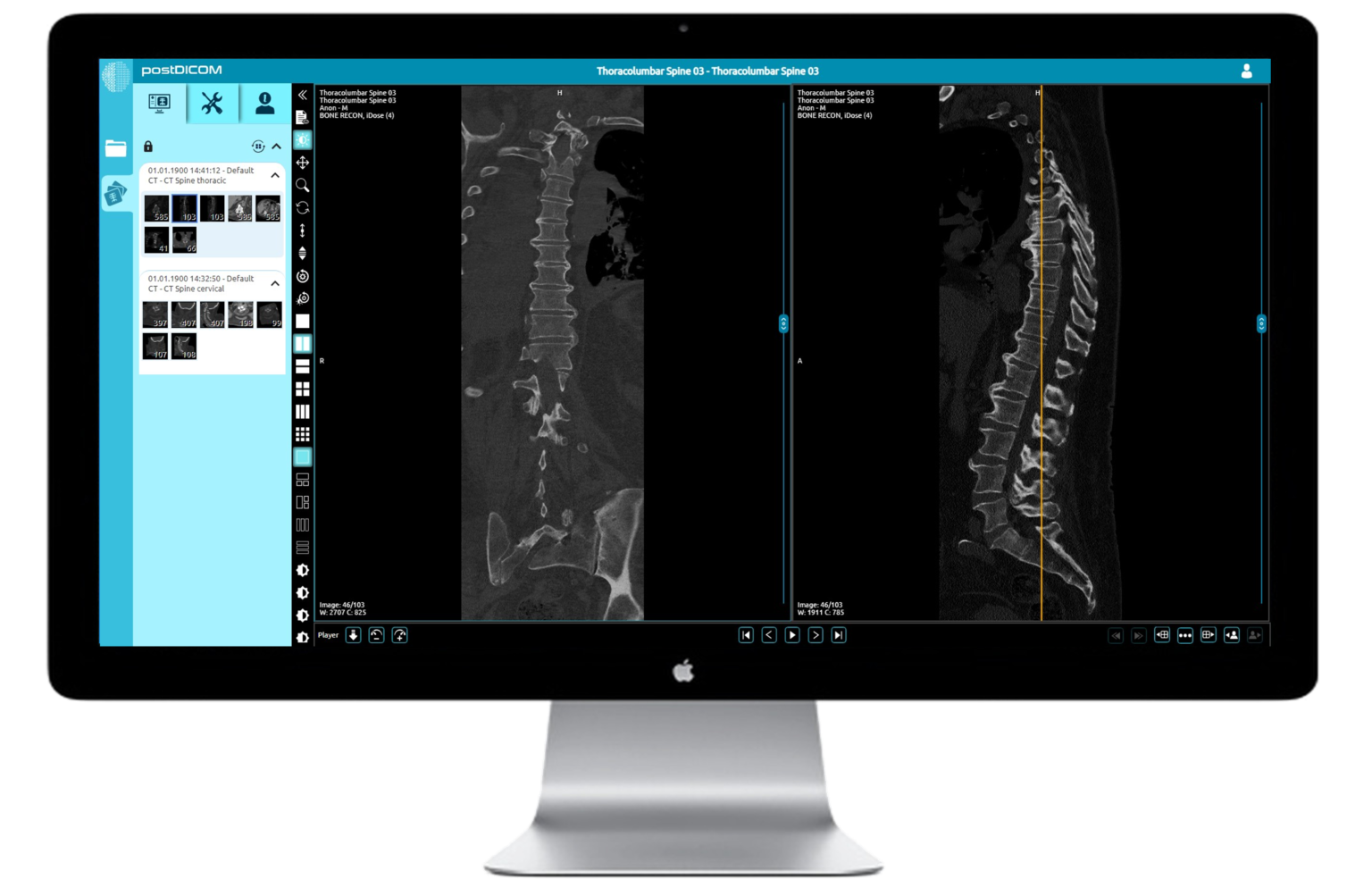
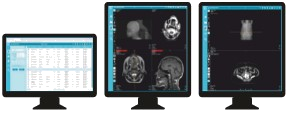

Sample the DICOM viewer here. A window will load below the buttons (best demonstrated on a computer rather than mobile device)
Frequently asked questions
When will I receive my course login?
We will contact you by email one week before the course takes place with all the necessary links and joining information.
We will re-send the links the day before the course.
If you have not received an email from us please contact us at webinars@infomedltd.co.uk and we will respond ASAP.
Will I need any special software to partake?
NO. Infomed shall provide you, upon registration a link to stream the course within your web browser, or you can download a small application to run it as a separate window on your computer. If you would prefer a mobile device, we shall also include a link download an app from the Play Store/App Store.
Can I interact with the speakers?
YES! It is very much encouraged. There will be Q&A sessions chaired by Infomed. You can type your questions in the ‘chat’ facility and they will be put to the speakers.
How I do access my catch-up & CPD certificate?
You can find your catch-up in your account page.
At the end of the catch-up page you will find a link to the feedback form, which will generate your CPD certificate when you submit your feedback.
If the catch-up is not visible in your account, please contact us and we will amend your account ASAP.
How to connect to a live online course
Using the short videos below, we shall guide you through the process of joining a meeting using Webex.
If joining from your own computer
If you are connecting from your own device then it is likely that you will be able to join via the Webex application.
If joining from a trust/institution computer
However, if you are using a computer that is owned and restricted by your trust, then you may find it easier to join via your web browser. Please see the second video for guidance on this process.
Joining Webex using the application on your PC or Mac
Joining Webex using your web browser
Accessing the PACS
Using the short videos below, we shall guide you through the process of opening the PACS and then on to opening, manipulating, and closing a case.
You are welcome to access our demo case set below
View demo cases here
Password: INFOMED
Accessing the database and cases on PACS
Advanced features of PACS
I've connected to a course but can't hear anything
When you connect to a course you should see some introductory slides and hear music.
If you cannot hear any music please check you are connected to the audio.
At the bottom of the webex meeting you may see a button that says “Connect to audio”.
Click this and then select “Use computer for audio” in the pop-up box.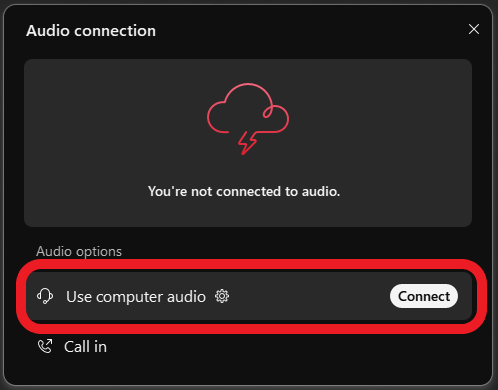
If you have connected by a browser you may need to give your browser access to your microphone in order to connect to the audio.
Click the padlock in the top left of your browser and make sure microphone access is allowed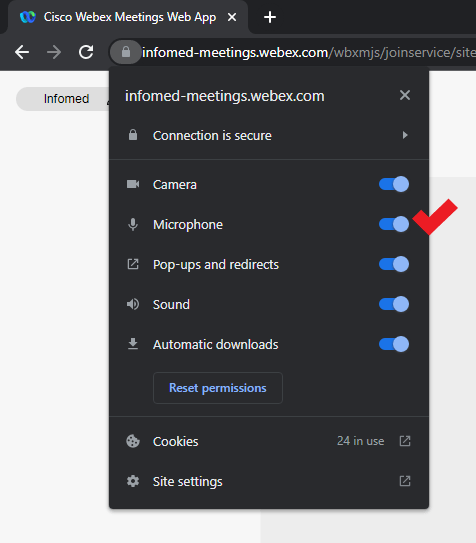
If this does not resolve your issue please email us or call us on 0204 520 5081
What do I need to join a course?
To join an Infomed Online course you simply need an internet connection and a browser (Google Chrome, Mozilla Firefox, Apple Safari).
You can also connect from a mobile device: Download the Webex Meetings app from your App Store.
To join a course with a smooth experience, your internet connection must be stable, not connected to a VPN and at least 20Mbps download.
Below you can use the tool to run an internet speed test.
You must test from:
- — the location that you intend the see the course from;
- — withing the location, if using Wi-Fi, the room or department area that you intend to view the course from to ensure a good signal
- — if connecting from home, a computer that is not connected to a workplace VPN
Speed test
Internet Speed Test
Please test your connection speed at www.fast.com
To join a course with a smooth experience, your internet connection must be stable, not connected to a VPN and at least 20Mbps download.
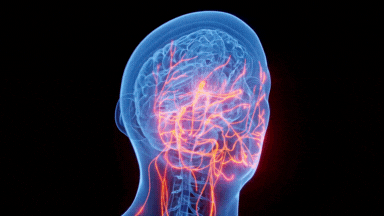
Fee: £195
- 120 days of access with unlimited playback during this time
- Access to PACS included
- CPD Certificate of attendance upon completion with 6 CPD points
- Opportunity to submit questions directly to the faculty
